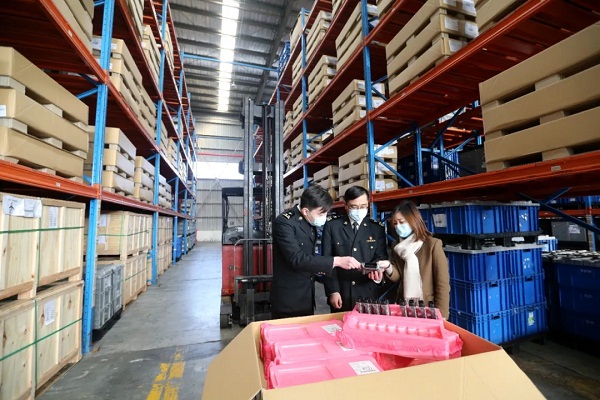 |
|
Jiading Customs officials offer guidance on the RCEP agreement to a company worker. [Photo/WeChat account: sh-jiading] |
Jiading district's automobile industry companies are benefiting from the Regional Comprehensive Economic Partnership, as the agreement helps lower tariffs for trade of automobile components to reduce production costs.
The RCEP agreement, which took effect on Jan 1 in China, Japan, Australia, New Zealand, and six ASEAN member countries (Brunei, Cambodia, Laos, Singapore, Thailand, and Vietnam), covers roughly 30 percent of the world's population, economic aggregate and foreign trade.
For instance, Continental Automotive Systems (Shanghai) Co, which is located in the Jiading Industrial Zone, will enjoy a 0.4 percent decrease in tariffs for its first batch of electronic products, which will be exported to Japan before the Spring Festival.
The company's exports to Japan this year are expected to increase by over 30 percent, said Lin Jia, manager of the company's supply chain management department.
SAIC Volkswagen has also benefited from the effect of the RCEP agreement for importing controller products from Japan.
"The RCEP agreement will help us save about 600,000 yuan ($94,135.83) in tariffs this year," said Sui Kaijia, senior manager of SAIC Volkswagen's plan logistics and control department.
In order to help companies benefit from the RCEP agreement, Jiading Customs has offered training and guidance.
The first 25 percent of Japanese exports to China have become tariff-free since the RCEP agreement took effect on Jan 1, and the figure will eventually rise to 86 percent, which is great for domestic companies, said officials from Jiading Customs.

